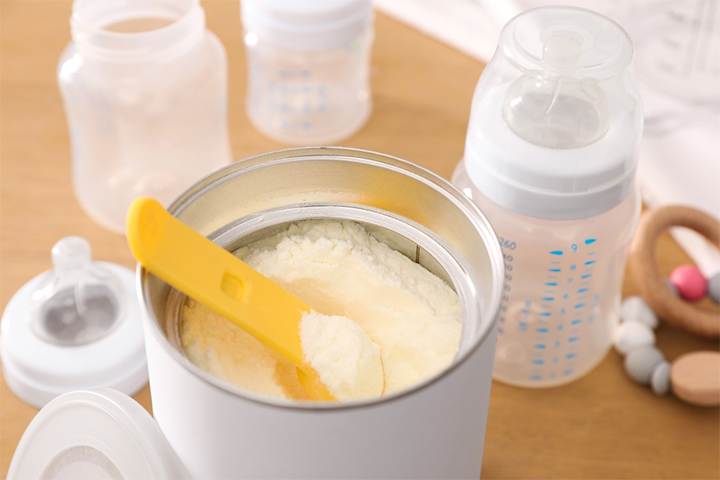
Image: Shutterstock
Every parent knows that if you have a baby, an upset tummy comes with the territory. It might surprise you that a little stomach could have so many problems, but tummy aches are very common among infants. They are especially apparent if you are trying to switch their diet or starting to introduce solid foods into their diet. But there is no need to get worried and all worked up. You needn’t visit the doctor’s office every single time your little one feels slight discomfort in their stomach. With these at home remedies, they will be as good as new in no time! Care to know what they are? Keep on reading.
1. Try A Baby Massage
Image: Shutterstock
Sometimes, a gentle and soothing massage can work wonders to alleviate discomfort and stomach pain in your baby. It’s important to remember that your baby’s digestive system is still developing, and issues like indigestion can be quite common. Infant massages are a natural and effective way to help ease abdominal discomfort. These massages can be beneficial for healthy, growing infants as long as they are not contraindicated by the pediatrician. A simple 15-minute massage that gently covers your baby’s face, limbs, abdomen, and back can provide significant relief and comfort to your little one.
2. Bicycle Their Legs To Remove Gas
Image: Shutterstock
Babies are often susceptible to gassiness, which can lead to uncomfortable tummy aches. When faced with this situation, it’s essential to help your baby release that gas. But how can you do it? One effective method is using external techniques, such as baby leg exercises. Some maneuvers to assist them in passing gas involve gently bending their legs and bringing their knees toward their tummy, as well as gently bicycling their legs. These simple motions can aid in releasing trapped gas from their intestines, offering relief to your little one’s upset tummy. It’s an easy and effective solution, eliminating the need for a trip to the emergency room!
3. Find The Right Formula
Image: Shutterstock
If your baby is formula-fed, it’s crucial to choose a formula that agrees with their tummy. Opt for an easily digestible option that is gentle on their stomach. For instance, if your baby experiences gassiness, hard or pasty stools, or digestive discomfort with their current formula, you might consider trying a formula with partially broken-down milk proteins, which can be easier for some babies to digest. These formulas are typically labeled as “gentle” formulas and often include probiotics, generally considered safe for infants. However, before making any formula changes, it’s essential to consult with your pediatrician to ensure it’s the right choice for your baby.
4. Check Their Latch
Image: Shutterstock
Tummy aches and digestive problems can affect not only formula-fed babies but also breastfed infants. A common issue breastfed babies may encounter is an improper latch. To avoid excess air intake, a tight latch is essential. If you suspect that your baby’s issues revolve around their latch, it’s advisable to consult a lactation consultant. They can help you adjust the latch and assess whether a tongue tie might be causing problems. A proper latch should allow your baby to breathe easily after sucking, demonstrate visible signs of swallowing, and have their lips flared out rather than tucked in. If these indicators are not present, your baby may be struggling with an incorrect latch.
5. Don’t Overfeed Your Baby
Image: Shutterstock
If your baby is feeding well and unlatches, this is not a mistake. When your baby unlatches, it means they are done breastfeeding and that’s perfectly okay. Your baby is small and can only drink little at a time so don’t force them to drink more milk. They will signal to you when they are hungry and need to be nursed again. However, it’s harder to gauge when they unlatch when they are bottle fed. And this can lead to them overfeeding which in turn can cause an upset tummy. Keep in mind that your baby‘s stomach is only as small as their fist. So eating in smaller quantities every two hours is preferred over drinking a lot of milk every four hours.
It always seems like the end of the world when your baby falls ill or is in pain but it doesn’t have to be. Tummy aches are very common and can be dealt with at home by taking a few precautions and being prepared. However, if your baby is in too much pain and you are unable to locate the cause of their discomfort it is best to consult a doctor. Happy parenting!

















